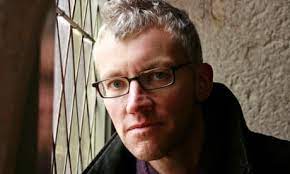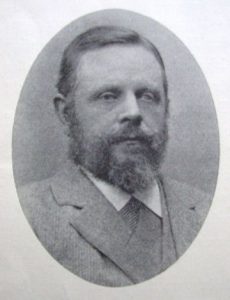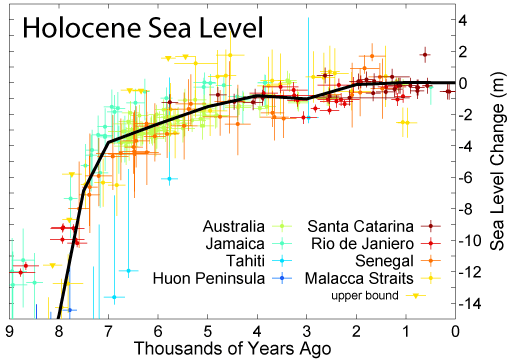Thorwald C. Franke
Harth, Jordi Guri *
Jordi Guri Harth is the author of a 2024 Kindle book Atlantis – The Cypriot Empire [2092]. It is a feeble attempt to breathe new life into the idea of Cyprus as Atlantis, a claim promoted by Robert Sarmast, with great fanfare, some years ago, but of which, little has been heard from him in recent times.
Thorwald C. Franke has published a short critical review(a) of the book, pointing out a number of weaknesses that he identified in it.
Harth is also the author of a paper on the academia.edu website titled The Odyssey and the Epimenides Paradox(b).
(a) Atlantis Newsletter Archive – Atlantis-Scout (Newsletter 224) *
(b) (PDF) The Odyssey and the Epimenides Paradox | Jordi Guri – Academia.edu
Fränzle. Beate
Beate Fränzle is a German scholar with a diverse background in classical philology, ancient history, and Greek studies. In Thorwald C. Franke‘s Newsletter No. 222 (June 2024)(a) he reviewed her paper Solon bei Platon and concluded that Dr. Fränzle “takes the view that Plato meant the Atlantis story to be true and historical, i.e. real. Whether this story from Egypt actually has any truth to it, and what that truth is, is not yet clear. Basically, Beate Fränzle belongs more in the camp of Atlantis supporters than Atlantis sceptics.
Beate Fränzle has announced a publication entitled Solons Götter – Platons Theologie, in which she will take a closer look at these theses. The article Solon bei Platon is an early extract from the forthcoming publication.”
(a) https://www.atlantis-scout.de/atlantis-beate-fraenzle-engl.htm
Holland, Tom
Tom Holland (1968- ) is the English author of a number of books on ancient and medieval history as well as a presenter of  documentaries on the BBC.
documentaries on the BBC.
Holland along with Dominic Sandbrook has fronted an extensive series of podcasts titled The Rest is History . Two recent (50 min) episodes(a)(b) dealt with the story of Atlantis. Thorwald C. Franke was ‘displeased’ with their content and produced a lengthy critique of the two segments in German(d) and English(c) in his Newsletter No.211. I advise that his full paper be read.
(a) (77) 314. Atlantis: The Legend – YouTube
(b) (77) 315. Atlantis: Legacy of the Lost Empire – YouTube
(c) Tom Holland on Plato’s Atlantis – Atlantis-Scout (Eng)
(d) Tom Holland über Platons Atlantis – Atlantis-Scout (Ger)
Svensén. Emil
 Emil Svensén (1850-1931) was a Swedish journalist who had a great interest in Atlantis. Thorwald C. Franke tracked down two publications(a)(b) in which Svensén offered his opinions on Atlantis.
Emil Svensén (1850-1931) was a Swedish journalist who had a great interest in Atlantis. Thorwald C. Franke tracked down two publications(a)(b) in which Svensén offered his opinions on Atlantis.
He believed that Plato’s Atlantis was based on at least two historical realities – the invasions of the Sea Peoples and the eruption of Thera, although details of the events became distorted and eventually emerged as the narrative we now have.
(a) Jorden och menniskan – Allmän geografisk läsebok “, Series: Svenska biblioteket , Stockholm (Fahlcrantz & Co) 1887
(b) “Atlantis”, in: Ord och Bild , 1895, pp. 289-310
Emil Svensén (1850-1931) was a Swedish journalist who had a great interest in Atlantis. Thorwald C. Franke tracked down two publications(a)(b) in which Svensén offered his opinions on Atlantis.
He believed that Plato’s Atlantis was based on at least two historical realities – the invasions of the Sea Peoples and the eruption of Thera, although details of the events became distorted and eventually emerged as the narrative we now have.
(a) Jorden och menniskan – Allmän geografisk läsebok “, Series: Svenska biblioteket , Stockholm (Fahlcrantz & Co) 1887
(b) “Atlantis”, in: Ord och Bild , 1895, pp. 289-310
Nowak, Peter
Peter Nowak is the author of the 2016 German-language book Everything You Wanted to Know about Atlantis (Was Sie schon immer über Atlantis wissen wollten)[1955]. Roland M. Horn, the Atlantisforschung founder, wrote the Foreword and declared that this “is one of the best Atlantis books ever written in my opinion!”(a)
Thorwald C. Franke has offered more muted support in an Amazon review(a).
Assman, Jan
 Jan Assmann (1938- ) is a renowned German Egyptologist and is Emeritus Professor at the Ruprecht-Karls-University Heidelberg. In June 2018, Thorwald C. Franke (Newsletter No.117) offered the following comments on Assmann’s attitude to Atlantis. “In his works, Jan Assmann touches on the topic of Plato’s Atlantis several times. In all relevant passages, he consequently avoids formulations and wordings which declare Atlantis to be just an invention by Plato. Assmann talks about the Atlantis tradition as an Egyptian tradition.
Jan Assmann (1938- ) is a renowned German Egyptologist and is Emeritus Professor at the Ruprecht-Karls-University Heidelberg. In June 2018, Thorwald C. Franke (Newsletter No.117) offered the following comments on Assmann’s attitude to Atlantis. “In his works, Jan Assmann touches on the topic of Plato’s Atlantis several times. In all relevant passages, he consequently avoids formulations and wordings which declare Atlantis to be just an invention by Plato. Assmann talks about the Atlantis tradition as an Egyptian tradition.
On the other hand, Jan Assmann avoids any explicit statement in favor of the existence of Atlantis, and how to imagine this existence in detail. And of course, as a reasonable Egyptologist, Jan Assmann rejects pseudo-science approaches such as considering Egypt and the Sphinx 11000 years old.
Assmann’s book with the most relevance to Atlantis research is “Wisdom and Mystery: The Image of the Greeks of Egypt”, which is available in German only, while other works of Assmann have been translated into English.”(a)
Assmann’s book Cultural Memory and Early Civilization [2071] can now be read online (b)
(a) https://www.atlantis-scout.de/atlantis_newsl_archive.htm *
(b) (99+) Assmann, Jan – Cultural Memory and Early Civilization | mustafa kaya – Academia.edu *
9,000
9,000 is arguably the most important number in Plato’s Atlantis narrative. It is found in Critias 108e describing the number of years between the war with Atlantis and the time of Solon’s visit to Egypt. However, in Timaeus 23e it is also given as the number of years since the foundation of Athens.
Taken at face value, it implies that around 9600 BC Atlantis launched an attack on Athens and Egypt. However, archaeologically this makes no sense as the is no evidence of structured societies at either location until many thousands of years later.
Nevertheless, it should be noted that when Greek numerical notation was developing, 9,000 was the largest value that could be expressed by a single character. Later, it was sometimes used to describe a large but indefinite amount. A Bible study site tells us that “The use of definite numerical expressions in an indefinite sense, that is, as round numbers, which is met with in many languages, seems to have been very prevalent in Western Asia from early times to the present day.”(a)
This apparent contradiction has baffled commentators for centuries. The ancient Egyptians had three calendars, solar, lunar and seasonal. As the solar years made little sense, attention turned to the lunar calendar used for religious purposes, keeping in mind that Solon received the Atlantis story from priests. Dividing 9,000 lunar cycles by 13 gives us around 692 solar years or circa 1300 BC for the war with Atlantis, which in isolation is more credible.
However, there are many other large numbers used by Plato in the Atlantis narrative relating to the military strength and dimensions of architectural features, which also seem to be exaggerations and, in my opinion, are all seeingly inflated to a similar degree! As I see it, there are two possible solutions. Either the numbers are the result of a variety of unrelated translations and/or transcription errors or we must consider the possibility that there is a single explanation for all the apparent anomalies. Reluctantly, I have suggested ‘factor ten‘ as the most likely solution.
However, there are other details in the Atlantis narrative that conflict with this early date for the war with Atlantis. Plato clearly states  that following the submergence of Atlantis its remains lay in shallow waters creating a maritime hazard and continuing to remain a danger to shipping until at least Plato’s time (Tim 25d). Since 9600 BC saw the ending of the last ice age, sea levels have risen 400 feet since then with minimal increases during the last couple of millennia. Shallows created in 9600 BC could not have lasted until Plato’s day.
that following the submergence of Atlantis its remains lay in shallow waters creating a maritime hazard and continuing to remain a danger to shipping until at least Plato’s time (Tim 25d). Since 9600 BC saw the ending of the last ice age, sea levels have risen 400 feet since then with minimal increases during the last couple of millennia. Shallows created in 9600 BC could not have lasted until Plato’s day.
Additionally, the earliest known solid wheels were not in use until the 5th millennium BC and were not developed as the lighter spoked wheels, suitable for chariots, until a millennium or more later. So when Plato refers to the Atlanteans having 10,000 chariots (Crit.119a), he could not have been referring to an army in 9600 BC. Furthermore, the greatest chariot battle in history took place in what is now Syria at the Battle of Kadesh in 1275 BC, between the Egyptians and the Hittites. The total number of chariots involved was between 5,000 and 6,000. In other words, a literal acceptance of what Plato wrote suggests that the Atlanteans had twice the number of chariots as that of the opponents at Kadesh combined. On top of that, those that accept the Atlantis story try to tell us that the Atlanteans had 10,000 chariots, eight thousand years earlier than Kadesh, millennia before chariots were invented!
Add to that, the clear evidence that horse domestication doesn’t appear in the archaeological record until about 5,500 years ago(b). Plato records that Atlantis had horse racing (117C) and horse baths (117b)! Not in 9600 BC.
Thorwald C. Franke has tackled this matter of an early date for Atlantis, offering an interesting addition to the reasons for rejecting it(c).
>>Nikos Mavrakis has noted(d) that “Many early Christians were skeptical of the Atlantis’ story, as the biblical age of the world was considered much shorter than 9,500 years.”<<
(a) http://www.biblestudytools.com/dictionary/number/
(b) https://www.smithsonianmag.com/science-nature/when-did-humans-domesticate-the-horse-180980097/
(c) Against the 10,000 BC Belief Complex – Atlantis-Scout
Bradwardine, Thomas
Thomas Bradwardine (1290-1349) was a highly regarded mathematician and theologian, who was, for a very brief period, Archbishop of Canterbury just before his death. Thorwald C. Franke has drawn attention to Bradwardine’s rejection of Plato’s, or more correctly the Egyptian priest’s, apparent claim of a very early date for Atlantis [1255.242]. It seems, particularly as a cleric, that he found such a date conflicted with biblical chronology. It seems that in the end, he proposed that Plato’s ‘years’ were lunar cycles.
Similarly, Pierre d’Ailly (1350-1420), a French theologian who became cardinal, arrived at the same conclusion. While discussing Timaeus he realised that Plato’s dates of 8,000 and 9,000 ‘years’ before Solon conflicted with church teaching that the world had only lasted for 6,200 years until the birth of Christ. In order to avoid an accusation of heresy, he used Bradwardine’s explanation that Plato referred to lunar cycles, not solar years.(a)
It is not unreasonable to deduce from this, that Bradwardine and d’Ailly would not have bothered to offer the ‘lunar cycle’ explanation unless they accepted the reality of Atlantis. It would have been much easier to dismiss the Atlantis story as a fiction.
Rodríguez Cantos, Pablo
Pablo Rodríguez Cantos is self-described as “a mathematician, a Catholic priest and an amateur poet from Granada.” We first encountered him earlier this year (2021), when he published a review (in Spanish) of Paulino Zamarro‘s book[0024], a review that can be read in English here.
Rodriguez has been studying the matter of Atlantis for some time and has published a number of related blogs on his website(b). He has now advanced further into the swampy field of Atlantology by establishing a bilingual English/Spanish forum(a) which he “expects to be a meeting point for professional, independent and amateur researchers on Atlantis topics according to a scientific methodology. Everybody can read the forum, but you must register for writing messages. Registration is completely free and really simple. Please read and accept the rules of the forum before you participate.”
Due to a daunting backlog of work I was unable to participate in it as I had hoped. I now note in his Newsletter 178(c) that Thorwald C. Franke has withdrawn from the forum as he realised “that the forum admin was not pursuing an existence hypothesis on Plato’s Atlantis at all, but an invention hypothesis.”
(a) Atlantis Forum (foroactivo.com)
